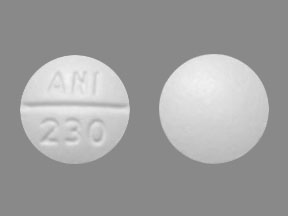Propafenone
Generic name: propafenone [ proe-PAF-e-none ]
Brand names: Rythmol SR, Rythmol
Dosage forms: oral capsule, extended release (225 mg; 325 mg; 425 mg), oral tablet (150 mg; 225 mg; 300 mg)
Drug class: Group I antiarrhythmics
What is propafenone?
Propafenone is a Class IC anti-arrhythmic that affects the way your heart beats.
Propafenone is used in certain situations to prevent serious heart rhythm disorders.
Propafenone may also be used for purposes not listed in this medication guide.
Propafenone side effects
Get emergency medical help if you have signs of an allergic reaction: hives; difficult breathing; swelling of your face, lips, tongue, or throat.
Propafenone may cause a new or worsening heartbeat pattern. Call your doctor at once if you have fast or pounding heartbeats, fluttering in your chest, shortness of breath, and sudden dizziness (like you might pass out)
Also call your doctor at once if you have:
-
shortness of breath (even with mild exertion);
-
swelling in your arms or legs;
-
sudden weight gain; or
-
fever, chills, sore throat.
Common side effects of propafenone may include:
-
irregular heartbeats;
-
nausea, vomiting, constipation;
-
headache, dizziness, tiredness; or
-
unusual or unpleasant taste in your mouth.
This is not a complete list of side effects and others may occur. Call your doctor for medical advice about side effects. You may report side effects to FDA at 1-800-FDA-1088.
Related/similar drugs
Warnings
You should not use propafenone if you have heart failure, Brugada syndrome, sick sinus syndrome, AV block (without a pacemaker), severe low blood pressure, very slow heartbeats, a severe electrolyte imbalance, shortness of breath, or if you recently had a heart attack.
Propafenone may cause a new or worsening heartbeat pattern. Call your doctor at once if you have fast or pounding heartbeats, fluttering in your chest, shortness of breath, and sudden dizziness.
Before taking this medicine
You should not use propafenone if you are allergic to it, or if you have:
-
heart failure, or if you have recently had a heart attack;
-
a genetic heart condition called Brugada syndrome;
-
a serious heart condition such as "sick sinus syndrome" or "AV block" (unless you have a pacemaker);
-
severe low blood pressure, or history of slow heart beats that have caused you to faint;
-
a severe or uncontrolled electrolyte imbalance; or
-
wheezing or shortness of breath.
Tell your doctor if you have ever had:
-
a breathing disorder;
-
liver or kidney disease;
-
lupus;
-
an abnormal blood test called Antinuclear Antibody Test or ANA.
Tell your doctor if you have a pacemaker or defibrillator. These devices may need to be re-programmed while you are taking propafenone.
Tell your doctor if you are pregnant or breast-feeding.
propafenone may affect fertility (ability to have children) in men. Talk with your doctor if you have concerns about this risk.
How should I take propafenone?
Follow all directions on your prescription label and read all medication guides or instruction sheets. Your doctor may occasionally change your dose. Use the medicine exactly as directed.
You may take propafenone with or without food.
You may have very low blood pressure while taking this medication. Call your doctor if you are sick with vomiting or diarrhea, extreme thirst, loss of appetite, or if you are sweating more than usual.
You may need frequent blood tests. Your heart function may also need to be checked with an electrocardiograph or ECG (sometimes called an EKG), before and during treatment with propafenone.
Store at room temperature away from moisture, heat, and light. Keep the bottle tightly closed when not in use.
What happens if I miss a dose?
Take the medicine as soon as you can, but skip the missed dose if it is almost time for your next dose. Do not take two doses at one time.
What happens if I overdose?
Seek emergency medical attention or call the Poison Help line at 1-800-222-1222.
What should I avoid while taking propafenone?
Grapefruit may interact with propafenone and lead to unwanted side effects. Avoid the use of grapefruit products.
What other drugs will affect propafenone?
Sometimes it is not safe to use certain medications at the same time. Some drugs can affect your blood levels of other drugs you take, which may increase side effects or make the medications less effective.
Propafenone can cause a serious heart problem. Your risk may be higher if you also use certain other medicines for infections, asthma, heart problems, high blood pressure, depression, mental illness, cancer, malaria, or HIV.
Many drugs can affect propafenone. This includes prescription and over-the-counter medicines, vitamins, and herbal products. Not all possible interactions are listed here. Tell your doctor about all your current medicines and any medicine you start or stop using.
More about propafenone
- Check interactions
- Compare alternatives
- Pricing & coupons
- Reviews (71)
- Drug images
- Side effects
- Dosage information
- During pregnancy
- Drug class: group I antiarrhythmics
- Breastfeeding
- En español
Patient resources
Other brands
Professional resources
Other brands
Related treatment guides
Further information
Remember, keep this and all other medicines out of the reach of children, never share your medicines with others, and use this medication only for the indication prescribed.
Always consult your healthcare provider to ensure the information displayed on this page applies to your personal circumstances.
Copyright 1996-2024 Cerner Multum, Inc. Version: 12.01.

